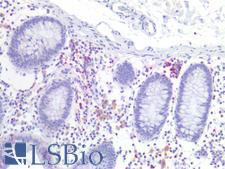Login
Registration enables users to use special features of this website, such as past
order histories, retained contact details for faster checkout, review submissions, and special promotions.
order histories, retained contact details for faster checkout, review submissions, and special promotions.
Forgot password?
Registration enables users to use special features of this website, such as past
order histories, retained contact details for faster checkout, review submissions, and special promotions.
order histories, retained contact details for faster checkout, review submissions, and special promotions.
Quick Order
Products
Antibodies
ELISA and Assay Kits
Research Areas
Infectious Disease
Resources
Purchasing
Reference Material
Contact Us
Location
Corporate Headquarters
Vector Laboratories, Inc.
6737 Mowry Ave
Newark, CA 94560
United States
Telephone Numbers
Customer Service: (800) 227-6666 / (650) 697-3600
Contact Us
Additional Contact Details
Login
Registration enables users to use special features of this website, such as past
order histories, retained contact details for faster checkout, review submissions, and special promotions.
order histories, retained contact details for faster checkout, review submissions, and special promotions.
Forgot password?
Registration enables users to use special features of this website, such as past
order histories, retained contact details for faster checkout, review submissions, and special promotions.
order histories, retained contact details for faster checkout, review submissions, and special promotions.
Quick Order
PathPlusTM CD7 Antibodies
CD7 is a transmembrane protein which is a member of the immunoglobulin superfamily. This protein is found on thymocytes, mature T cells, monocytes, pluripotent hematopoietic progenitor cells, early myeloid cells, and pre-B cells. It plays an essential role in T-cell interactions and also in T-cell/B-cell interaction during early lymphoid development. CD7 is an effective marker for T-cell Acute Lymphoblastic Leukemia (T-ALL). Furthermore, positive expression of CD7 is considered a marker of poor prognosis in myeloid malignancies and in cytotoxic T-cell lymphoma, while loss of CD7 indicates poor prognosis in FLT3/ITD-mutant positive acute myelogenous leukemia, adult T-cell leukemia and lymphoma, aggressive NK cell lymphoma and HTLV1.
References: The UniProt Consortium. Nucleic Acids Res. 47: D506-515 (2019); Nucleic Acids Res. 2016 Jan 4;44(D1):D733-45, PMID:26553804; Int J Hematol 2010;91:303, PMID: 20111912; Am J Surg Pathol 2003;27:1366, PMID: 14508398;
1 PathPlusTM Antibody

☰ Filters
Products
Antibodies
(1)
Type
Primary
(1)
Target
CD7
(1)
Reactivity
Human
(1)
Application
IHC-P
(1)
WB
(1)
Flo
(1)
IP
(1)
Host
mouse
(1)
Product Group
PathPlus Cancer
(1)
PathPlus Cancer Pathology
(1)
Isotype
IgG1
(1)
Clonality
monoclonal mc
(1)
Clone
MEM-186
(1)
Format
Unconjugated
(1)
Publications
No
(1)

Cancer Pathology
Cancer
CD7 Mouse anti-Human Monoclonal (MEM-186) Antibody
Human
Flo, IHC-P, IP, WB
Unconjugated
0.05 mg/$375
Viewing 1-1
of 1
product results











